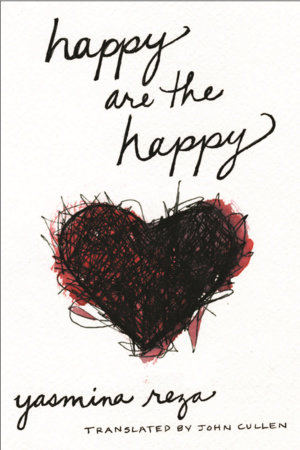READERS GUIDE
1. Each of the eighteen linked stories in
Happy Are the Happy is told in the first person. How does this affect your reading of the work as a whole and your understanding of each of the characters’ perspectives?
2. Vincent Zawada’s mother and Jean Ehrenfried both have cancer. Do you think their disease works well as a metaphor for the dysfunctions that plague the novel’s couples and the larger society they inhabit? Explain.
3. How is Odile Toscano different from the other women in the novel? Compare her marriage to Robert with the Hutners’ marriage. Do you believe the Hutners’ marriage is healthier and better able to handle crises?
4. Robert Toscano claims “Women will seize any opportunity to deflate you, they love reminding you how much of a disappointment you are” (p 5). Paola Suares states, “Men are totally immobile creatures. We women are the ones who create movement. We wear ourselves out invigorating love” (pp 39–40). What do you make of how the men and women in the novel describe themselves and each other in terms of gender? Do you think any of the male characters in the novel are misogynists?
5. Philip Chemla is arguably the most well-regarded character in the novel, yet he is the most dejected, and the one living a secret life radically divorced from his public persona. Are there other examples of this kind of dissonance in
Happy Are the Happy?
6. Marguerite Blot, Pascaline Hutner, and Rémi Globe all use the word “abandonment” (pp 13, 31, 81). How is the way that each one uses the word different from the others? Do you think the fear of abandonment is at the root of many of the problems the characters in the novel face? Marguerite makes a distinction between the words “abandonment” and “left” (p 13). In the novel, are there characters who are abandoned, and those who are left?
7. On page 39 Paola Saures is disgusted when Luc Condamine sniggers at her story of “a man who suffer[s] from solitude.” Does the novel itself, in exposing the absurdity inherent in relationships, make us as readers complicit in Luc’s callousness?
8. On page 85 Chantal Audouin declares, “Couples disgust me. Their hypocrisy. Their smugness.” Is this the sentiment espoused by the novel? Does
Happy Are the Happy offer any hope for couples, or for popular conceptions of romance?

